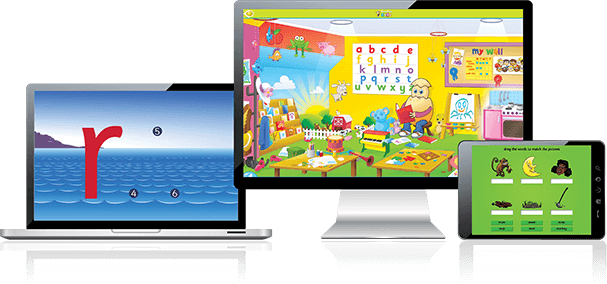Ways To Encourage Positive Development In Children
Most parents want their children to be good at studies and co-curricular activities but forget to pay emphasis on proper behavior and personality development. Success is not only measured by good grades and winning medals at school but is equally attributed to demonstrating positive character traits and being a good person at heart.
A positive parenting approach focuses on preparing kids to be well-rounded individuals so that they can achieve career goals, and personal goals, while also contribute to the upliftment of society, by balancing all aspects of life seamlessly.
To inculcate such high-value practices, educators & parents must start by setting an example and encouraging open communication, so that children are comfortable sharing their thoughts, and fears, & in turn learn a great deal by asking questions. Here are a few techniques to practice every day, to train your child from an early age, to lead emotionally satisfying & purposeful lives:
#1 Be a Role Model
Children as young as 14 months copy what they see around them and the two-year old’s start imitating the behaviors of people they interact with. This means that children have great observation skills and a big part of their personality development will get affected by their surroundings. If you as an adult demonstrate good traits, the child will notice and learn the same. Every action of yours is being carefully evaluated and accessed, so be sure to demonstrate; healthy eating habits, speaking positively, using proper body language, always being cheerful, respecting everyone, and setting realistic goals.

#2 Inculcate a practice of Learning
Learning doesn’t necessarily have to be in the classroom, it can happen anywhere. Probably enrolling into a hobby class can teach children how to play an instrument or learn a new language; like Spanish. Reading Eggs is an excellent platform used by most students in Dubai and other Middle East regions to practice vocabulary and teach kids the rules of phonics in a fun & engaging way. Simply download the Reading Eggs App or subscribe to their monthly magazines. There are numerous avenues for hobby classes in Dubai and GCC regions, and signing up for one is only a matter of a click on your phone. Occasionally, you might want to encourage kids to visit a library over the weekend and spend time browsing through books. The aim is to make your kid a lifelong learner!
#3 The Act of Contentment
It is natural for children to want toys, gadgets, games, & anything that their friends have. Wanting the latest edition of ‘smart watch’ just to flaunt it around and not to feel left out from the crowd, is actually an unhealthy behavior. Contentment is a state of satisfaction that puts your mind & body at ease. Practicing contentment on an ongoing basis will only increase the ‘happiness quotient’ and foster a feeling of awesomeness. To start with, teach kids to be grateful for the smallest things they have; house, food, good health, education, and friends. Ask them to start their day with a prayer and read out all the things they already have, thereby thanking God. Teaching the value of money is equally important and a habit of savings in a piggy bank ensures that they restrict the urge of spending, to save for a better future tomorrow.
#4 Teach Them To be Resilient
While growing up children are constantly experiencing positive and negative situations around them. Being scolded at is very common and getting into a tiff with a fellow student happens on & off. All these little instances seem small but can affect the child’s mental & emotional well-being to a great extent. Apart from day-to-day stressors, there could be some major episodes, like having to deal with death in the family or feeling traumatic due to unfavorable conditions at home. Pilling up negative emotions & experiences plays on the child’s mind and greatly affects his morale. To cope with these unfavorable stressors, teach your child to practice self-care. Start by encouraging them to take part in activities that uplift their mood, which could be related to sports or drama. Ask your child to follow a healthy schedule and sleep & eat on time. Talk your child through his trauma and explain that everything is temporary. Practice positive affirmations every single day and inculcate the habit of helping others, as this gives the child more confidence. Most importantly have loving bonds with family members and create an environment of free-flowing conversation between all.








Recent Comments